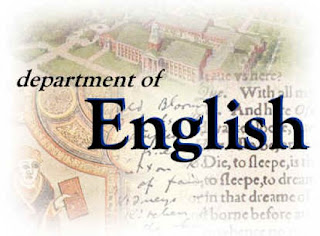Phrase & Clause
In English grammar, phrases and clauses are groups of words that function as units within a sentence. They contribute to the overall meaning and structure of a sentence, but they differ in their complexity and completeness.
Phrase
Definition: A phrase is a group of words that functions as a single unit in a sentence but lacks a subject and a finite verb. It can act as a noun, adjective, or adverb within the sentence.
Examples:
- “Hasan wants to go to America.” (Noun phrase acting as the object of the verb ‘wants’)
- “The blue sky looks very nice.” (Adjective phrase modifying the noun ‘sky’)
- “He worked with all sincerity.” (Adverbial phrase modifying the verb ‘worked’)
Types of Phrases:
-
Noun Phrase: Functions as a noun in a sentence.
- Can be a subject, object, complement, or object of a preposition.
- “The rivers of Bangladesh are beautiful.” (Subject)
- “I like singing in the bath.” (Object)
-
Adjective Phrase: Modifies a noun or pronoun, providing descriptive details.
- “He is a man of noble principles.”
- “Shompa lost her dark brown briefcase.”
-
Adverbial Phrase: Modifies a verb, adjective, or another adverb, giving information about time, place, manner, or reason.
- “The train was running at high speed.” (Manner)
- “He went to university in time.” (Time)
-
Verb Phrase/Verbal Phrase: Consists of a main verb and its auxiliaries.
- “Arefin is waiting for you.”
- “We are going to see our parents.”
-
Prepositional Phrase: Begins with a preposition and ends with a noun or pronoun (its object), showing relationships of place, time, direction, etc.
- “He succeeded by dint of hard labor.”
- “She is at the point of death.”
-
Conjunctional Phrase: Starts with a conjunction and connects phrases or clauses.
- “You should not go out as long as it rains.”
Clause
Definition: A clause is a group of words containing a subject and a finite verb. It can be independent (forming a complete sentence on its own) or dependent (requiring an independent clause to complete its meaning).
Examples:
- “He gave me a book that I lost.” (Independent clause + dependent clause)
- “I have a ring which is made of gold.” (Independent clause + dependent clause)
Types of Clauses:
-
Principal/Independent/Main Clause: Can stand alone as a complete sentence.
- “He gave me a book.”
-
Subordinate/Dependent Clause: Cannot stand alone and functions as a noun, adjective, or adverb within a sentence.
- “that I lost” (Noun clause)
- “which is made of gold” (Adjective clause)
- “when he comes” (Adverbial clause)
-
Coordinate Clause: An independent clause joined to another independent clause using a coordinating conjunction.
- “I went to his room, and I found him using Twitter.”
Key Differences
- Structure: A phrase lacks a subject-verb pair, while a clause contains both.
- Completeness: An independent clause can express a complete thought, while a phrase or dependent clause cannot.
- Function: Phrases function as parts of speech (noun, adjective, adverb), while clauses can be independent or dependent, serving various grammatical roles.
Identifying Clauses
- Look for a subject-verb pair.
- Check if the group of words expresses a complete thought (independent clause) or depends on another clause for meaning (dependent clause).
- Identify the type of clause based on its function in the sentence (noun, adjective, or adverbial).
Reduced Clauses
- Dependent clauses can sometimes be reduced by omitting the relative pronoun and/or the ‘be’ verb, resulting in a more concise structure.
- “All of the money that was accepted has already been released.” (Original)
- “All of the money accepted has already been released.” (Reduced)
Understanding phrases and clauses is fundamental for analyzing sentence structure and comprehending complex grammatical relationships. By recognizing their distinct characteristics and functions, you can improve your ability to interpret and construct sentences effectively.
Feel free to ask if you have any more questions or want to explore specific examples!




